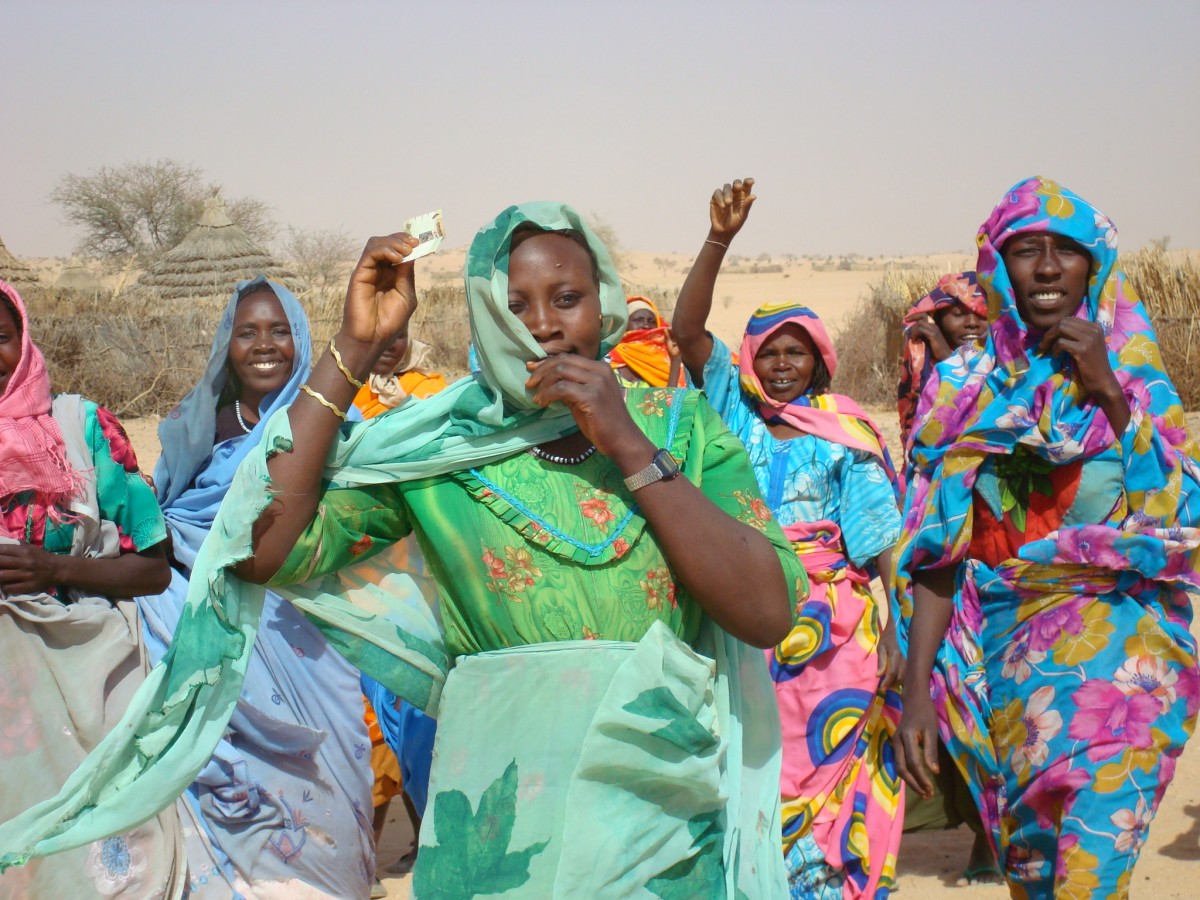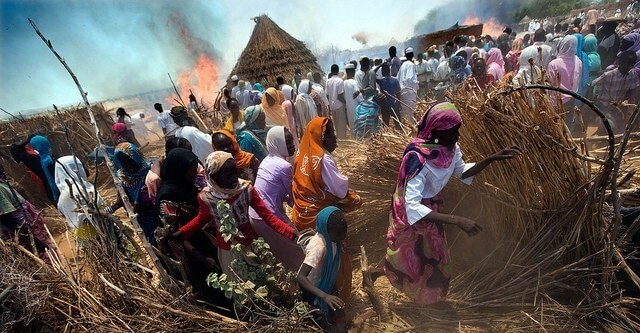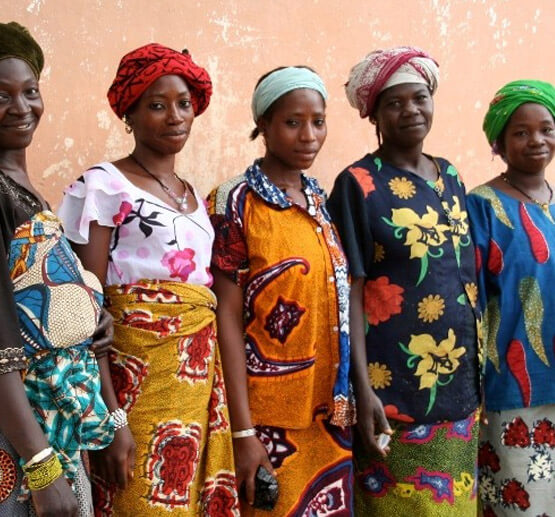MEET DWAG’S HEROES OF THE YEAR
We are pleased to invite you to join us in recognizing our heroes. As part of our International Human Rights Day celebration, we are honored to recognize our outstanding women’s rights leaders.

This French-American film maker living in Santa Barbara, CA with his actress wife, Roxanna Bina, and their three young sons is a Board member of Darfur Women Action Group.
Emmanuel is a man with a playful, dynamic, upbeat persona. He is well-known in the movie industry as a director, producer, and entrepreneur, in addition to his expertise as a film and music journalist. But it is his passionate philosophy as noted in his personal mantra -“In Oneness is Love; In Oneness is Peace” – that is clearly exemplified in his movie “FEMME Women Healing the World”. He has taken an unconventional approach in portraying women in our society in the most beautiful way you would want to see. Unlike the traditional media portrayal of women as weak or seductive or as victims, Emmanuel has, via his powerful documentary “FEMME Women Healing the World”, gone in-depth and precisely uncovered the power of feminine love and the presence of compassion that each and every single woman throughout history holds. FEMME has won many awards and is featured in innumerable international film festivals.
While he was interviewing women leaders around the globe, I met Emmanuel in LA and he invited me to be featured in his documentary. Later I asked him what motivated him to produce this film. His answer was very simple; he told me that he just views women differently than those who might abuse women see them and in order to change that perception, he had to do something about it. His movie would allow more people to see women from the lens that he had been gifted with. His documentary has beautifully reflected not only the love and compassion but the strength and leadership and the greater contribution that women have made from antiquity to today. His belief is that women empowered will empower all humans – and the result will be a more unified and harmonious world.
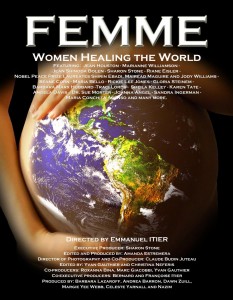
Emmanuel joined DWAG as a Board member in 2011 and continues to support our efforts including, but not limited to, attending our symposium and offering free screenings of his marvelous documentary to our supporters.
Please read more about Emmanuel and watch “FEMME Women Healing the World” the movie, order a copy or host screening to your friends.
https://www.youtube.com/watch?v=RjYopoPo55A
Read Emmanuel’s bio, like him on Facebook and give him a shout out on Twitter
Link to FEMME website: https://www.youtube.com/watch?v=RjYopoPo55A
Interview with Emmanuel: https://youtu.be/GHMg7JgJkQE?t=4
READ EMMANUEL’S WRITTEN INTERVIEW
Emmanuel, you are an experienced feature film producer, why did you choose to be a part of a Women’s Empowerment Film?
This is a legitimate question as many women but especially men always wonder why such a macho guy like myself did such a Feminist movie. Well there are several reasons.
First, almost 5 years ago I was completing another important documentary: The Invocation (trailer: http://www.youtube.com/watch?v=yicNscEO0y0), which is an exploration of the notion of “God” and Oneness. When I did this film I travelled all over the World and met with male visionaries such as Deepak Chopra, His Holiness The Dalai Lama, Archbishop Desmond Tutu but I also went and met with enlightened and leading women such as Karen Armstrong, Sandra Ingerman, and Sharon Stone who became my partner, an executive producer and the narrator for The Invocation. By doing so, by “daring” to ask women about “God” to the contrary of most “spiritual” documentaries who just enlist men to give you an answer I discovered a whole wide Divine Feminine world and vision. You see men are not raised that much with the consciousness of the Feminine world. Even worse: because we are told not to whine, not to cry, not to fail, not to feel we develop very quickly a superman complex giving us the illusion that men are made to fight, conquer, take and eventually kill! Basically by age 10 a typical young boy anywhere in the world will have his “femininity”, his sensitive and caring and nurturing side totally removed, totally castrated. No wonder that later on we have most men having a “mid life” crisis, it’s the consequence of years of being un-balanced and un-happy with oneself. Therefore, by the end of The Invocation it was clear that ‘Femme-Women Healing The World’ was going to become my second endeavor and quest at trying to figure out how to build a safe and more sustainable future of Humanity. And second, to add a touch of humor to this answer I believe that as a French man I’m a compulsive women lover and I truly feel only happy and complete next to women and working with women. So spending 3 to 4 years of my life at the service of women, promoting them, empowering them and at the same time educating my male genre and myself has been a privilege, an honor and a dream come true. Ultimately this movie is not only a Feminist movie but it’s a Humanist movie aimed at demonstrating that together, men and women, we make and are Life!
FEMME: Women Healing the World is the second film in a series of documentaries that you are producing and directing with the intention of Peace. Can you give us an example of how women are healing the world?
First of all Women are Healing the World from the get go when they raise a child as never, ever do they put any single thought about hate, war, destruction. They are not the one giving at age 5 their boy a gun to go and play with! Their husband or brother does that because they think it’s cool and a necessity to teach the young “full of love” child how to “become a man”, a “God” and go and take this world apart. Everywhere I travelled to, even in the Middle East where women are clearly put on the side and men take over the dominative education of their boys I have never met a mother revolted by the idea her son should become a soldier and go and kill other people. Talking of the Middle East it is not written anywhere in the Quran that women are lesser than men and should lead a covered from head to toes existence. And it’s not written anywhere that any single Muslim has the right to kill another soul. On the contrary the Quran ask for every Muslim to accept and embrace Judaism and Christianity. The problem is that over the Ages Men has prostituted and distorted the message of every scripture. And it is not only with Islam but also with Christianity: remember the Crusades and the Inquisition. Where is it written that a single Christian has the right to kill and take and impose his views on others? God is Oneness, it is not male, not female, not a gender, not an entity. When Abraham asked God what he should tell his people who God is, God said: “Tell them I am what I am, I am”. God is the notion of becoming by being, of existence. “God is all and all is God” that is the common definition of all Religions and the rest is just Men’s interpretation sometimes turned into false prophecies giving them the illusion they have to go and conquer, take and kill. I will always remember my interview with Desmond Tutu when I went to South Africa: “You see Emmanuel, People think they need to fight for God, to defend God! As if God needed THEM to do that! Non sense!” I think for me Women are healing the World by bringing SENSE to the world, common sense, love sense, and Peace sense. This is how we will heal each other, by daring to say all the time: I Love You. Some people say true power is when a Man say 3 words and you’re dead. Well, I say that TRUE POWER is when a man and a woman say 3 words: I Love You…and then there is Life! I dare you to try it, it works all the time. Saying I Love you give you life to yourself and to other. There is nothing else that count and this is the true meaning, the true sense of Life.
You traveled around the world interviewing influential women for this film. How long did this take, where did you go and how many women did you interview?
Indeed I travelled all around the World, 5 continents, 6 with we count the “spiritual continent” I visited listening and being truly enlightened by over 500 mavericks women from over 25 countries. Of course I went and met with well-known ladies such as Nobel Peace Laureates Shirin Ebadi, Mairead Maguire and Jody Williams and also to Marianne Williamson (running for Congress right now! Go Marianne!), Jean Houston, Maria Bello (who has an amazing women charity called We Advance www.WeAdvance.org), Barbara Marx Hubbard, Sandra Ingerman, Jean Shinoda Bolen, Celeste Yarnall and so many more but I also and met with women who have not been exposed enough by the medias. Because, again, with the medias there is a tendency to only promote the ones who already are in the limelight and not take a “chance” on women who have not gotten a break and been picked up by a major outlet. Of course this “macho” attitude to go only with the Alpha female is changing with the power of the internet and more and more businesses run by or even belonging to women: such as the Huffington Post. Thank you Arianna!
In any case we travelled, my director of photography Claude Budin-Juteau (http://www.yellowtruckproductions.com/Yellow_Truck_Productions/About_Claude.html) to China (where women are completely re-shaping the whole country little by little!!), to Latin America (gorgeous Brazil and full of life Mexico), to Africa (in perpetual re-evolution from Egypt to Nigeria to South Arica), to the Middle East (the day Women are in key position of power in every Arab country there will be Peace!!), to Europe (France my “homeland”, Norway where I met Nobel Laureate Shirin Ebadi in exile from Iran (!), Italy, England…), to India (so many countries in one major force and women also little by little pushing for gender equality), to the US (my new “home sweet home”, pretty much 5 continents in 1 country and still re-inventing itself…even if the U.S Constitution does not guarantee women the same rights a men!! Still some work to do therefore!). What I saw and heard is that Women are here to take more and more the Lead. And it is not to lead us into War as Men have done for greed, for fear but to lead us into an era of Peace and Love. Yes, Men, do take a vacation with me, let’s find a good bar, have a beer (or two), shoot some pool games and let the ladies lead us out of this chaos!
There are 100 inspiring women that you interviewed in the film. What are the different viewpoints covered in the film? (For example: spiritual, political, artistic etc.)
The movie might appear as an intense back-to-back bombing of deep thoughts all intertwined in one long sentence but in fact and indeed there is a solid and strong structure to FEMME. We start with some Historical facts and therefore I asked a few scholars such as Miriam Dexter from UCLA (http://women.ucla.edu/faculty/dexter/ ) and Karen Tate ( www.karentate.com ) to explain how we got to this ultra macho male dominant society. Mesmerizing and several times a Nobel nominated genius: Riane Eisler (www.rianeeisler.com) joined also the ensemble of historians as well as Elisabeth Sahtouris ( www.sahtouris.com ). A second part of FEMME is trying to understand what the Feminine could bring to the table of change, to men and would it mean the end of us-men, and the take over of matriarchy over patriarchy.
In this segment of the film we listen to the powerful minds of Jean Shinoda Bolen (www.jeanbolen.com), Jean Houston (www.jeanhouston.org , Barbara Marx Hubbard (www.barbaramarxhubbard.com) and Sandra Ingerman (www.sandraingerman.com) and we come to understand that Peace and the Future of Humanity is all about the Partnership between The Feminine and The Masculine, between Men and Women. I can’t list the 100 amazing, inspiring, dedicated women from FEMME but I hope you will take the time to discover this amazing picture and let yourself get inspired by these many divine voices. The third part of the movie is about concrete ideas and solutions to fix our planet whether it’s with the environmental crisis, or the economical and political challenges ahead of us. Let yourself be guided by the Nobel Peace Laureate Shirin Ebadi, Mairead Maguire and Jody Williams. But listen also to the genius of Angela Davis, Seane Corne, Maria Conchita Alonso, Barbara Lazaroff, and so many others. By the end of FEMME we hope you feel empowered to become Peace in Action, to be the Change you want to see in the World. Most of all we hope you will have received a huge dose of “I Love You” from all these Ladies to uplift your soul, carry your body so you can keep going with the struggle and challenges of your daily life, with the hope better days are coming!
You are raising a family with two sons and another child on the way. As a man in this world, in your opinion, why is so important to find the balance between the feminine and masculine energy?
Yes, having two sons, Felix (8) and Max (2) and a third boy, Oscar, due in June 2014! This is going to be a great team of Women advocates!! I can tell you that even so, compared to my friends who have girls, their level of energy is sometimes quite high this doesn’t mean they are made to be soldiers and the girls of my friends’ nurses! Maybe one of my sons will make a great nurse and this would be grand as there is nothing more important in life than to save and protect life. And I don’t believe guns protect life. Guns are made to kill, period. Both men and guns kill. Therefore as a dad, even so our society and the medias are bombarding them of false ideas and macho ideas, I try to keep away violence and guns from their education. I strongly believe that a balance of the feminine and masculine energies within leads to healthy completed human beings who can ponder the pros and the cons when face with challenges without falling for a rage-full macho brute response. Let’s remember that in the belly of our mothers we are roughly for 2 to 3 months both feminine and masculine. Even so there is a gender “separation” on a sexual level doesn’t mean there isn’t a gender Oneness not existing on energy, a spiritual level. It’s all about the balance of the Feminine and the Masculine, the Ying and the Yang, the Mars and the Moon, making one with the mystery of the Universe.
How can men thrive in hope for the future by supporting the women in their lives?
Quit trying to control, take over, dominate but on the contrary Men, dare to push a woman to be all she wants to be. Remember where you come from! Remember you owe women your life, as much, if not more, than from men! FEMME is a strong guide for men to understand women and give them a sense of hope and meaning in their lives. We show them they don’t need to be brutes. Every woman is reminding them they are made for Love as much as women are. I believe that when men will dare to life up the veil of every women still in-slaved somewhere in the World that they will be blinded by the light and the love a woman as to offer and they will be change. Love does change you for the better. If you cover love, light, like a flower you die and turn to dust. Right now to many men have kept a veil, physically, spiritually, over women and this is why we have such a level of violence, of disconnection and ultimately this leads to terrorism and war.
Looking toward the future, what can parents do when raising their children to support future generations shift towards Peace?
Don’t ever buy kids a gun, ever! Guns are made to kill and not to make Love! There are no arguments about this. IF you want to buy a gun for your own personal use wait to be a highly mature and educated human being who can admit and face the fact you have in your hand a “weapon of mass destruction” and assume the consequences. I would want to believe that if you are that person of high maturity and awakening you will realize you don’t need weapons to get to Peace. To prepare to Peace is NOT to prepare to War. To prepare to Peace you need to prepare to Peace. Today in a World that is in fairly sad chaos on so many levels we need to have Peace rooms at the White House and in similar building of other Heads of Government. The War room is obsolete and will never lead to Peace. So, parents, listen to your kids real needs and feelings. Talk to them as an adult and build their self-confidence by telling them over and over and over how much you LOVE them. Have Faith in Love not in War, in Life not in Death, in “God” not in Evil.
The world has only known to fight and be fearful for so long, how will men find freedom and their own voice by allowing the feminine energy to co-exist.
As I just explained in the questions above it’s all about the education of the new generation of young men filling them with as much Love as we can and removing the false idea that they are the Superman, the Head of the family, the God on Earth! It will take couple of decades as I still the strong remain of the ultra patriarchal system in place. But I want to believe that finally Men are broke and tired of dying everywhere in the World. This is probably why they start finally to let women lead and seek their partnership. Because they have realized their macho brute destroying views are not fit for a World that need more than ever Oneness and Peace. I trust Peace is coming and the liberation of Men, after year of mental jail, is here. Our film is a tool to understand the process and get some viable solution to be part of the Universal change. So, wake up, stand up and fight for your Freedom. Free your mind, free your body, and free the World and our Humanity.
How can women feel empowered and support men that are used to the fear and fight approach?
Be attentive and dare to confront your men with love and understanding. Don’t slap them but gently ask them strongly why they are not happy and what they need. So many men indeed are so used to leave in fear and violence that they have forgotten what it means to be in Peace, in Love. So it will take you some time to reach down into their core. But all Men are born good, to love, know that. Therefore be stronger that the mental sickness Society and the Patriarchal way have put into them and try to free them. It’s not an easy process as of course Men need deeply to want to change to be changed but they need your help first. They are sinking and they need a hand thrown at them to try to get out from the quicksand of their inner asylum. If you can’t do it on your women, seek help, as they are so many organizations capable of support. Remember we are One and we all are the saviors of each other, we trigger each other genius, each other Love. So keep at it, don’t give up, you will heal the Men and heal the World.
You spent several years gathering the interviews in this film. What would you say you have gained from your experience?
Not only I have gained an amazing education at being a better men and a better listener and supporter of women but I have removed all “superman complex” I had been enslaved by and realize I don’t have a brute to be a Man, I don’t have to take, use, abuse, destroy, conquer and kill. If only all Men would realize they are made for Loving, for Living and not for Hate and Killing, I want to believe the level of War and terrorism would decrease immensely. It will take time as we are still the victims of over 3,000 to 4,000 years of ultra macho dominative imperial system but I want to believe that a decade or two from now we will have young men for whom the notion of war is a true absurdity of the past, of their fathers. Jesus, Muhammad, The Buddha, Martin Luther King, JFK and even the Beatles said it, wrote it, sung it: “All we need is Love! All we need is Love! Love Love Love is all We need”. And I shall conclude with a true inspiring quote from Gandhi: “There is no way to Peace, Peace is The Way” which means to me that one day indeed People will be in Peace because there is no other way to Live your Life in pure harmony, in pure Oneness. Amen, Insha’Allah, Shalom Shalom, Namaste! Peace and Love.
I hope you all will be inspired to become women’s rights leaders
Sincerely,
Niemat Ahmadi, DWAG’s president
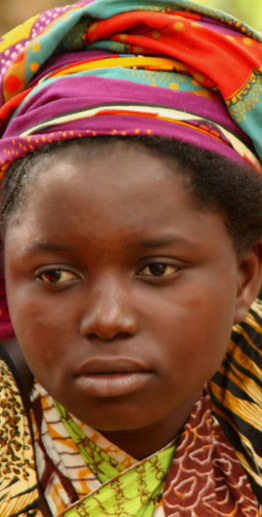
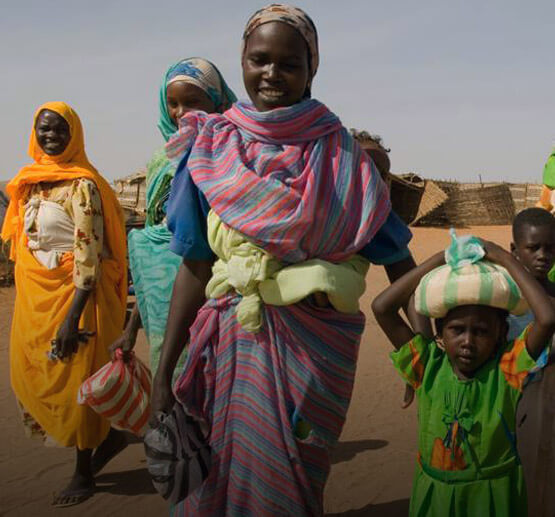
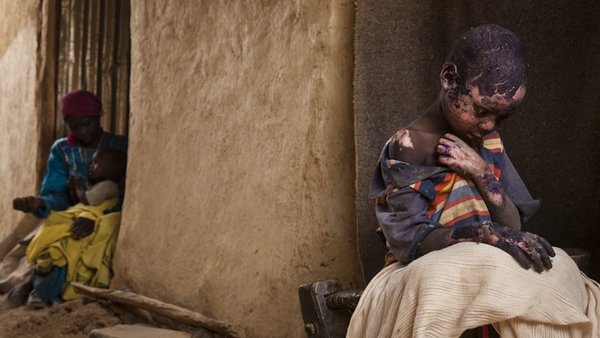 Please read this
Please read this 